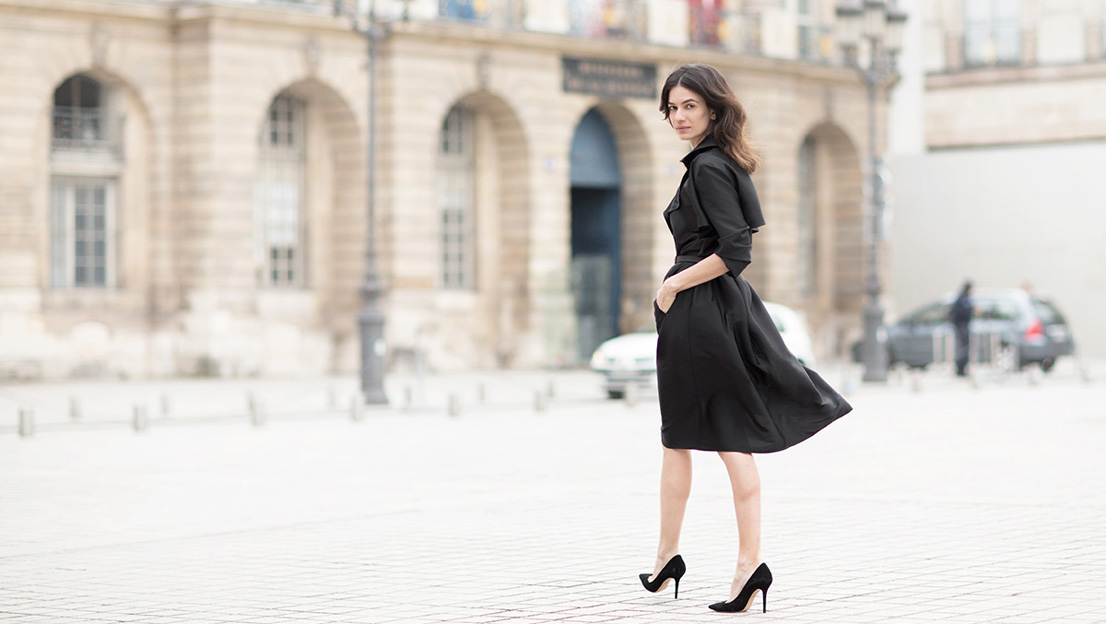Everyone has those articles you keep bookmarked to back to once in a while, right? For me, that’s a piece Chimamanda Ngozi Adichie wrote for US Elle last year. If you don’t recognise her name, stop what you’re doing right now and log on to YouTube. Adichie is the incredible feminist Nigerian writer who did that now-famous Ted Talk about why we should all be feminists and the impact of different cultural narratives. You know, the one that ended up appearing in snippets on Beyoncé’s Flawless track. Anyway, the whole point of the piece for Elle was about an issue I think we all know – that women can often only be seen as one thing, beautiful or smart, nice or powerful.
‘A fellow aspiring writer once said of one faculty member, “Look at that dress and makeup! You can’t take her seriously.” I thought the woman looked attractive, and I admired the grace with which she walked in her heels,’ she writes. ‘But I found myself quickly agreeing. Yes, indeed, one could not take this author of three novels seriously, because she wore a pretty dress and two shades of eye shadow.’ The piece goes on to explain how she gradually moved away from the bright colours and statement pieces she was naturally drawn to in a bid to be taken seriously. It was only 10 years later that ‘I wore, for the first time, clothes that made me happy,’ she writes. ‘Perhaps it is the confidence that comes with being older. Perhaps it is the good fortune of being published and read seriously, but I no longer pretend not to care about clothes. Because I do care.’
[show_shopthepost_widget id=”651196″]
Honestly, if you haven’t read it already, you really should because I think it really touches on something we all can related to in some way or another, especially those of you within the fashion and beauty world. It’s part of the reason I’ve always loved Caroline Issa. Aside from being beautiful, she’d already established herself in the finance world before making a segue into fashion as the fashion director and publisher of Tank, where she’s equally as successful. She’s the perfect example of what, to me, is blatantly obvious: being smart and dynamic doesn’t mean you’re not interested in your appearance, nor does it mean that you’re dumbing yourself down working in fashion.
I’m sure you all know about Caroline Issa but Style Bop’s Leila Yavari is another incredible woman to have on your radar too. In another feature with US Elle, she wrote candidly about feeling the need to hide the fact that she was working as a model while studying for her doctorate in political theory from UC Berkley, but also about the fact that she missed the intellectual challenge once she decided to drop out of school to model full time. Rather than me trying to summarise, here are a few nuggets from the piece:
 On her aspirations growing up: At the time my two obsessions (apart from the dress) were growing up to be a Supreme Court Justice and Jem, from Jem and the Holograms. These two ideals did not strike me as mutually exclusive—after all, why wouldn’t one grow up to save the world and look absolutely fabulous while doing it? By the time I reached my early ’20s I had made respectable headway. I had enrolled in a highly regarded graduate program at UC Berkeley while flirting on and off with modelling. To my surprise, Jem remained an unexpected role model. I was her bookish, if somewhat stage shy alter ego during the day, only to transform into a rocking glamazon when booked for the right campaign.
On her aspirations growing up: At the time my two obsessions (apart from the dress) were growing up to be a Supreme Court Justice and Jem, from Jem and the Holograms. These two ideals did not strike me as mutually exclusive—after all, why wouldn’t one grow up to save the world and look absolutely fabulous while doing it? By the time I reached my early ’20s I had made respectable headway. I had enrolled in a highly regarded graduate program at UC Berkeley while flirting on and off with modelling. To my surprise, Jem remained an unexpected role model. I was her bookish, if somewhat stage shy alter ego during the day, only to transform into a rocking glamazon when booked for the right campaign.
On trying to hide her modelling: Rather than flaunting my extracurricular activities, I felt the need to hide them from colleagues. I often did a Clark Kent—changing in the back of my car after castings, slipping on glasses, ragged jeans, and sweeping my hair into the most library-appropriate bun I could muster. I never wore heels to a school event, never flaunted a new acquisition or choice freebie, and was always hyperconscious of being modestly dressed and makeup-free on campus. I remember being mortified when one of my students recognized me from an advertisement. How could anyone take me seriously now?
On having to dress down: I could never locate the source of my dread. Was it self-imposed? The product of so many years of social training that teaches us that smart little girls have better things to worry about than appearance. Was it my own insecurity with my environment? Feeling that I did not measure up to the standard? Or was it the quiet judgment of my colleagues, who had an unspoken hierarchy of suitable and unsuitable pursuits. In seminar, no one batted an eyelash if the conversation swung from student revolts in the Middle East to the semiotics of pornography, but one could sense the collective shrug if I even mentioned the possibility of style as a political statement—what it means, for instance, for a woman to wear jeans under her chador.
On dropping out of school for modelling: [It] marked the beginning of an amazing, eye-opening adventure that ultimately led to my doing something I love deeply. But for many years—perhaps even until recently—I wondered…had I sacrificed the better me? Had I thrown away my bright future for the frills and thrills of that polka dot dress? I’ll admit that I no longer spend my time thumbing through Foucault or thinking through the logic of late capital. But I have a sharply honed critical eye—one that is hyperaware of the divide between surface and intellect, appearance and truth. And it’s an age-old opposition that always pops up in the most unexpected places.


